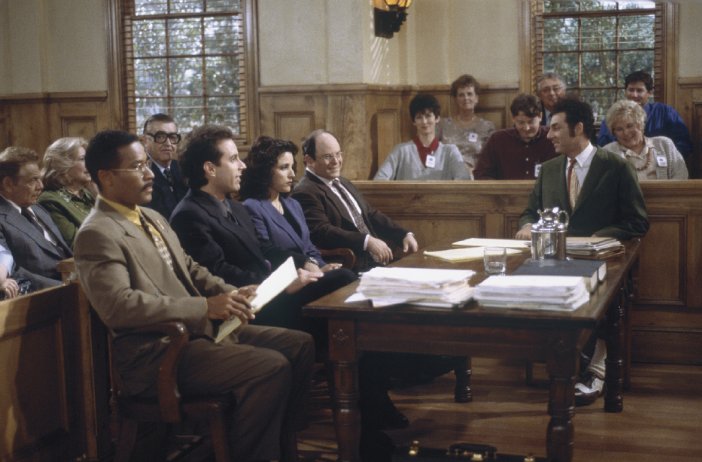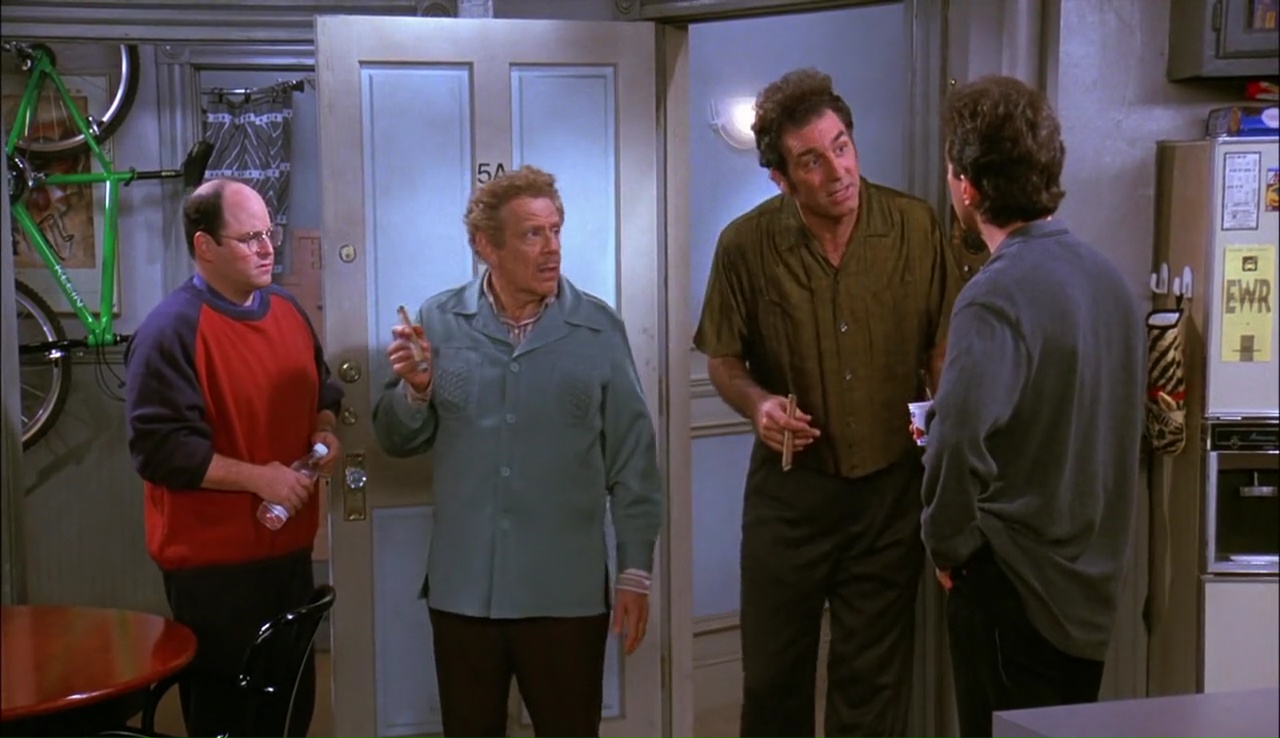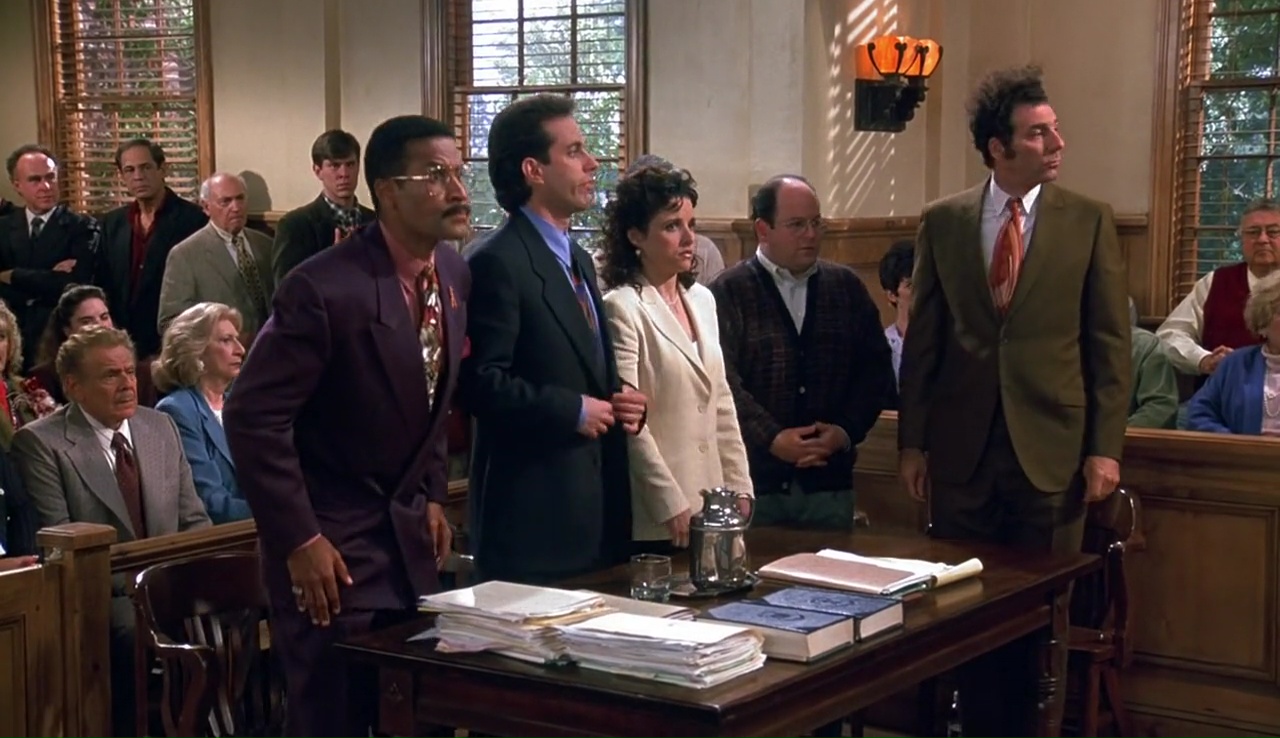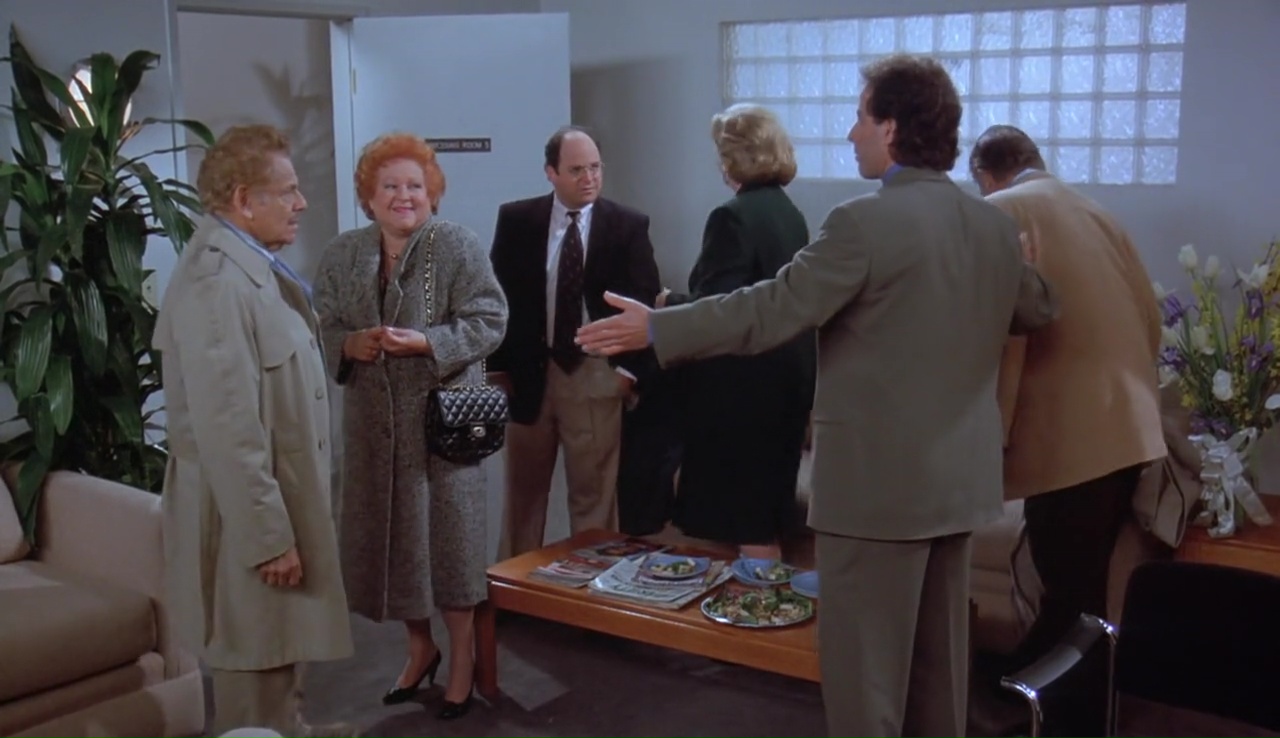Frank Costanza is the father of George Costanza, best friend to the fictionalized version of the comedian Jerry Seinfeld, on the NBC sitcom Seinfeld. The character's first appearance was in Episode 62, 'The Handicap Spot.' It was the 22nd episode of Season 4, airing on May 13, 1993. (In that episode, the character was played by actor John Randolph. In all subsequent appearances, the character was played by actor and comedian Jerry Stiller. In 1995, Stiller re-shot the Randolph scenes from Episode 62, and those scenes were inserted into the episode, but only for syndication purposes on U.S. television. Randolph's scenes were left on the DVD releases and on syndicated episodes airing outside the United States.)Frank Costanza is an eccentric retired salesman. He's a lifelong New Yorker who might have Italian roots, particularly in the Tuscany region. He served as an army cook in the Korean War. After the war, he returned to Korea several times as a traveling salesman specializing in Christian artifacts. He is fluent in the Korean language, and even had a brief romance with a Korean woman who returns in the Season 6 finale, only to leave Frank again after she feels he made an inappropriate sexual pass at her. It is never revealed what he sold during his career, or when he retired, but he has specialized knowledge of various types of clothing, and some of his former business contacts are still working in New York.He has unusual habits, hobbies, and interests. Famously, he obsesses over driving etiquette and parking spaces, and will circle city blocks endlessly until the perfect space opens up closest to his destination. If parked directly in front of his own home, he will go months without moving his car, for fear of never getting the same space again. His attic is full of tropical cruise clothing and he collects Latin American music albums. He also collects TV Guide issues, and guards them jealously. He does not like it when people discuss movies he has not yet seen, nor does he have patience with what he perceives as social missteps (inattentive waiters in restaurants, dinner hosts who do not acknowledge gifts he has given them, people who see him on the street but fail to greet him.) He is also fond of definitive or judgmental pronouncements. ( And she is not welcome in this house! / Morty Seinfeld? He's a bum. / That's it! We're moving! I will not tolerate infestation! )Frank is generally ill-humored and quick-tempered and has little patience with any other characters on the show, especially his wife, Estelle. The couple live at 13-44 Queens Blvd. (It is not known if this is George's boyhood home, but the framed baby pictures of George suggest the Costanza's have lived at that address for some time.) Frank and Estelle's ages are unknown, but Frank's Korean War service puts his birth date at roughly the early 1930s. Also, George is approaching 40 years old by the end of the show's run, which means Frank and Estelle have been married for four decades, give or take. Their marriage is not warm or affectionate. They disagree on everything, often loudly, while pointing fingers at one another and making hysterical insults. Though they remain married throughout the series, they separated for most of Season 6, providing the show with an occasional sub-plot in various episodes. In the first episode of Season 7 they are reconciled, with no explanation.Frank has no interest in his son George's social life, and often expresses his disbelief at the behavior and ideas of George's friends--Jerry, Kramer, and Elaine. When he does address George, Frank is usually confrontational or condescending. He treats George like a habitual failure, in keeping with George's unofficial nickname on the show, 'Biff.' (This alludes to Biff Loman, the failed son of character Willy Loman in the Arthur Miller play, 'Death of a Salesman.' The parallels between Biff/Willy and George/Frank are occasionally reinforced throughout the series.) In Season 5, when unemployment forces George to move back home with his parents, Frank treats George like an adolescent rather than an adult. He locks the liquor cabinet, forbids visitors when he's not home, attempts to ground George for having sex in the house, and forces George to attend job interviews instead of shop for sneakers. When George finally does get a job with the New York Yankees and moves out of the house, in the Season 5 finale, Frank shows no confidence that his son will be successful. (The strained relationship between George and his parents is often referenced by George, and in 'The Fire' episode in Season 5, George has a flashback to his seventh birthday party, where both parents are heard off-screen yelling at him as a chubby young George sits horrified in front of a birthday cake. Frank twice shouts at George, Blow out the damn candles! while Estelle screams, Stop it, Frank! You're killing him! All is meant to suggest that neither Frank nor Estelle were ever ideal parents.)At various times in the series, Frank endures a bitter relationship with Jerry's father, Morty Seinfeld. It is suggested the two families were once socially involved, but since their retirements have drifted apart. The Seinfelds left New York for a retirement community Florida, and when they occasionally visit Jerry they go out of their way to avoid seeing the Costanzas. This mystifies Frank at first, because he believed the two families were life-long friends. When he realizes the enmity is genuine, he quickly adopts a distasteful and insulting attitude toward the Seinfelds, especially Morty, who is also a retired salesman and who Frank claims he could buy and sell, implying Frank was more successful in business (although this is never verified.)In the final season of the series, it is revealed that Frank had invented Festivus ( for the rest of us ), an alternative holiday to Christmas. It is something of an anti-Christmas event celebrated on December 23, complete with plain aluminum pole (in lieu of a decorated tree) and an Airing of Grievances dinner rather than the usual spreading of good cheer.Also in the final season, Frank finally takes steps to control his temper and his blood pressure. He is advised to repeat the words Serenity now whenever he feels frustrated or angry. True to form, he angrily yells the words Serenity NOW! and only exacerbates his mood swings.
Show less «







